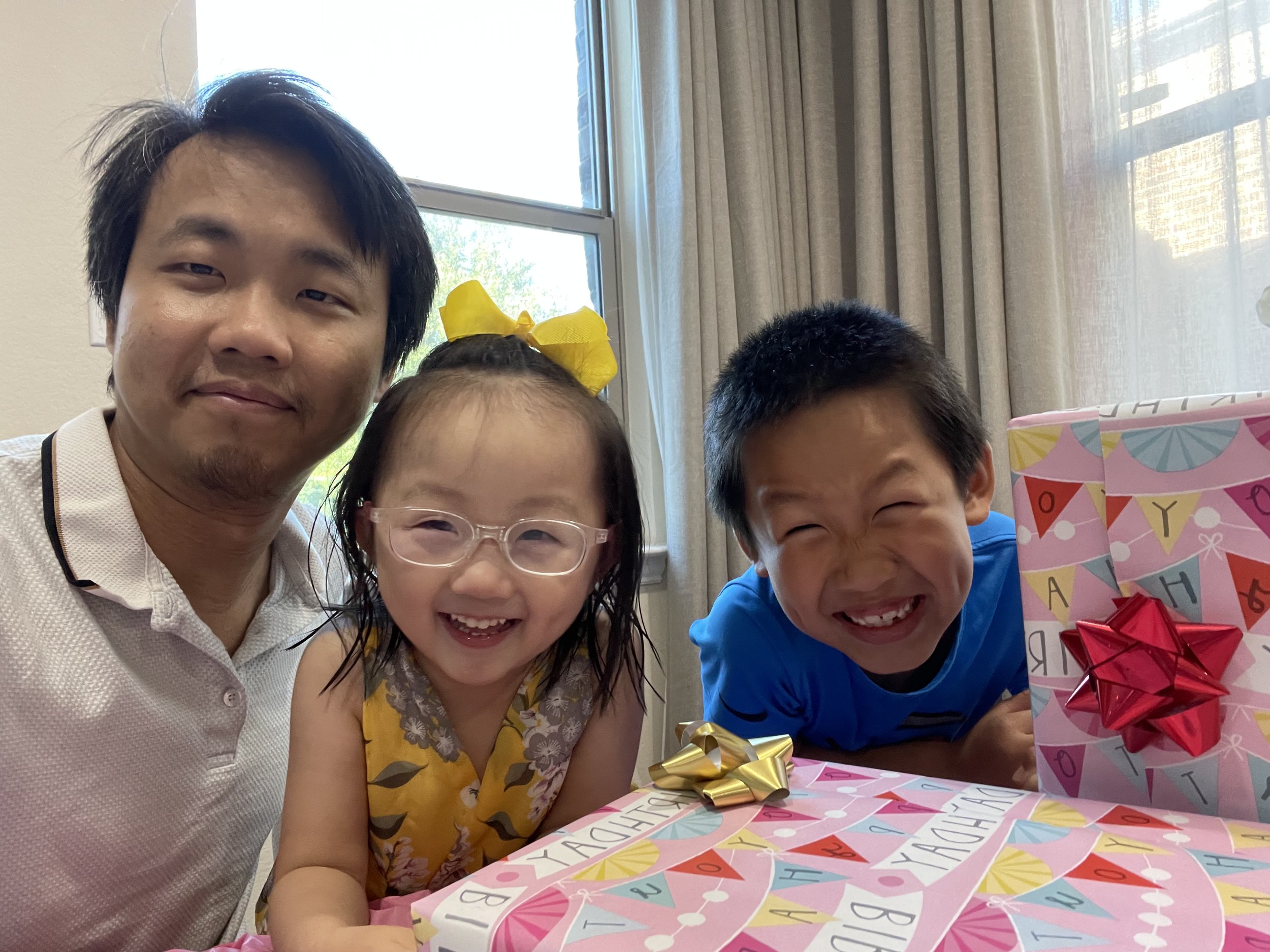
My Story
Several years ago, I was diagnosed with IgA Nephropathy, a kidney disease that gradually erodes kidney function, leaving me facing an uncertain future. Despite the challenges, I've navigated through treatments, surgeries, and even a transplant, but now find myself once again in need of urgent assistance.
In 2021, my kidneys deteriorated rapidly, pushing me towards the brink of kidney failure. Dialysis became a necessary part of my routine, further complicated by the emotional strain of a divorce. Hope arrived in the form of a transplant in 2022, but complications arose, leaving me fighting for my life on a ventilator. While the new kidneys provided some respite, they are now failing, and I'm facing the daunting prospect of returning to dialysis.
A Glimpse into My Life
I am a 38-year old devoted father to two remarkable children, Allison and Logan, aged 6 and 10, respectively. They are the shining lights of my life, bringing immeasurable joy and purpose to each passing day. Despite the challenges posed by my health, I cherish every moment spent with them, from cheering them on at soccer games to imparting knowledge during impromptu science lessons. Their presence fuels my determination to overcome adversity and witness their growth firsthand.
The Dialysis Experience
Living with kidney disease entails a silent struggle, characterized by persistent fatigue and stringent dietary restrictions. As I prepare to resume dialysis, I am acutely aware of the toll it will exact on my physical and emotional well-being. Each session demands hours of dedication, disrupting both work commitments and daily routines. The burden is further compounded by the necessity of numerous medications, which often take a toll on my mood and mental health.
The Road Ahead
Currently, I'm on the national deceased donor waiting list, but the wait could be lengthy, especially given my history with transplantation. Since I've already undergone a transplant, my body has produced additional antibodies, making it more challenging to find a suitable match. This implies that if I were to undergo another transplant that isn't successful, locating a compatible match in the future would be even more challenging. A living donor could significantly reduce my wait time and improve my chances of a successful transplant. With one healthy kidney, a living donor could change the trajectory of my life, offering the possibility of more time with my children and a brighter future.
I understand the enormity of the decision to become a living donor, and I don't take it lightly. The process involves risks, but it's also an opportunity to make a profound difference in someone's life. If you or someone you know is interested in learning more about the living donor process, please don't hesitate to reach out. Your willingness to consider this selfless act could mean the world to me and my family.
Please share my story with your network. Together, we can spread awareness and potentially find the match I so desperately need.
If you are interested in learning more about Living Donor Kidney Transplant, please reach out the Nurse Coordinators using utswlivingdonor@utsouthwestern.edu or by calling (214) 654-1919 and ask for the Living Donor Kidney Team. Just mention my name, Hieu Duong, for reference.
UT Southwestern has a dedicated team that provides care for living donors, similar to the specialized team they have for transplant patients.
With heartfelt gratitude,
Hieu
-
Prospective donors undergo thorough testing to guarantee their health post-donation. Living donors exhibit a lower likelihood of developing kidney disease compared to the general public, with an expected incidence of end-stage renal disease (ESRD) of less than 1%. Furthermore, living donors can still have children after donation, experiencing outcomes similar to those of non-donors.
For more details, visit the UTSW’s website for Living Donor Kidney Transplant.
-
Living-kidney donors undergo minimally invasive laparoscopic surgery to remove the donated kidney (laparoscopic nephrectomy). Risks associated with this procedure are small and manageable.
Most kidney donors can return to normal, productive lives about four to six weeks after surgery, with many able to return to work a week or two later, depending upon their jobs.
For more information about the surgery and recovery process for kidney donors, please visit UTSW’s website for Kidney Donor Surgery and Recovery.
-
While offering incentives, rewards, or compensation to donors is prohibited by law, there are methods to alleviate the donor’s financial burdens. The recipient’s insurance typically covers medical costs linked to donation, encompassing expenses from the initial assessment to post-transplant care.
Additionally, the National Living Donor Assistance Center (NLDAC) offers qualification-based support to assist with travel and lost wages. Visit www.livingdonorassistance.org for more information.
Moreover, the Family Medical Leave Act (FMLA) safeguards living donors by providing coverage for their donation-related needs.
For more details, reach out the Nurse Coordinators using utswlivingdonor@utsouthwestern.edu or by calling (214) 654-1919 and ask for the Living Donor Kidney Team.
-
Enjoying minimal wait time on the national waitlist is just one of the benefits of living donation. This can occur even before a patient needs dialysis, allowing for surgery planning at a convenient time for both the recipient and donor. Immediate transplantation after organ removal enhances success rates and facilitates quicker organ functionality in the recipient, leading to improved long-term outcomes. Notably, living-donor kidneys boast a lifespan twice as long as deceased-donor kidneys, underscoring the significance of expedited transplantation.
For more information, watch this video from UTSW (same video as above).
Also visit UTSW’s site for Living-Donor Kidney Donation.
-
There are different types of kidney donations. The donated kidney does not need come from a blood relative. My blood type is A though even if the donor is not compatible with me, they can arrange a paired donation, which pairs an incompatible kidney donor and recipient with another incompatible pair.
For more information, watch this video from UTSW (same video as above).
Also visit UTSW’s site for Living-Donor Kidney Donation.
-
For more questions, reach out the Nurse Coordinators using utswlivingdonor@utsouthwestern.edu or by calling (214) 654-1919 and ask for the Living Donor Kidney Team. Just mention my name, Hieu Duong, for reference.
UTSW suggested the above approach is the best option for privacy purposes. If you would like to contact me directly, email me at kidney4hieu@gmail.com.
Additionally, here are some quick links to the UT Southwestern Transplant websites:
UT Southwestern Living Kidney Donor Transplant - information about living donation
UT Southwestern Living Donor Application - direct link to online application
